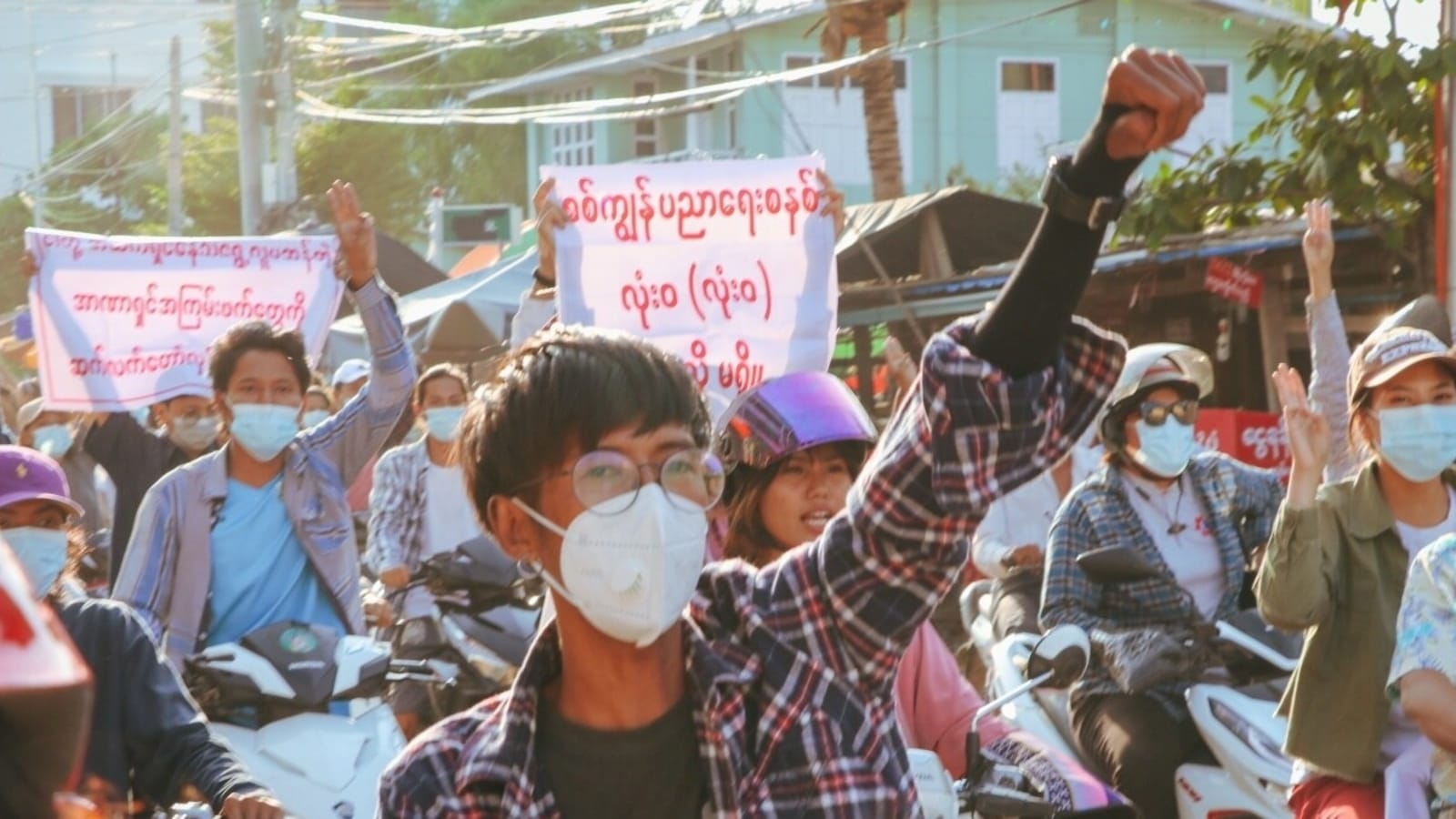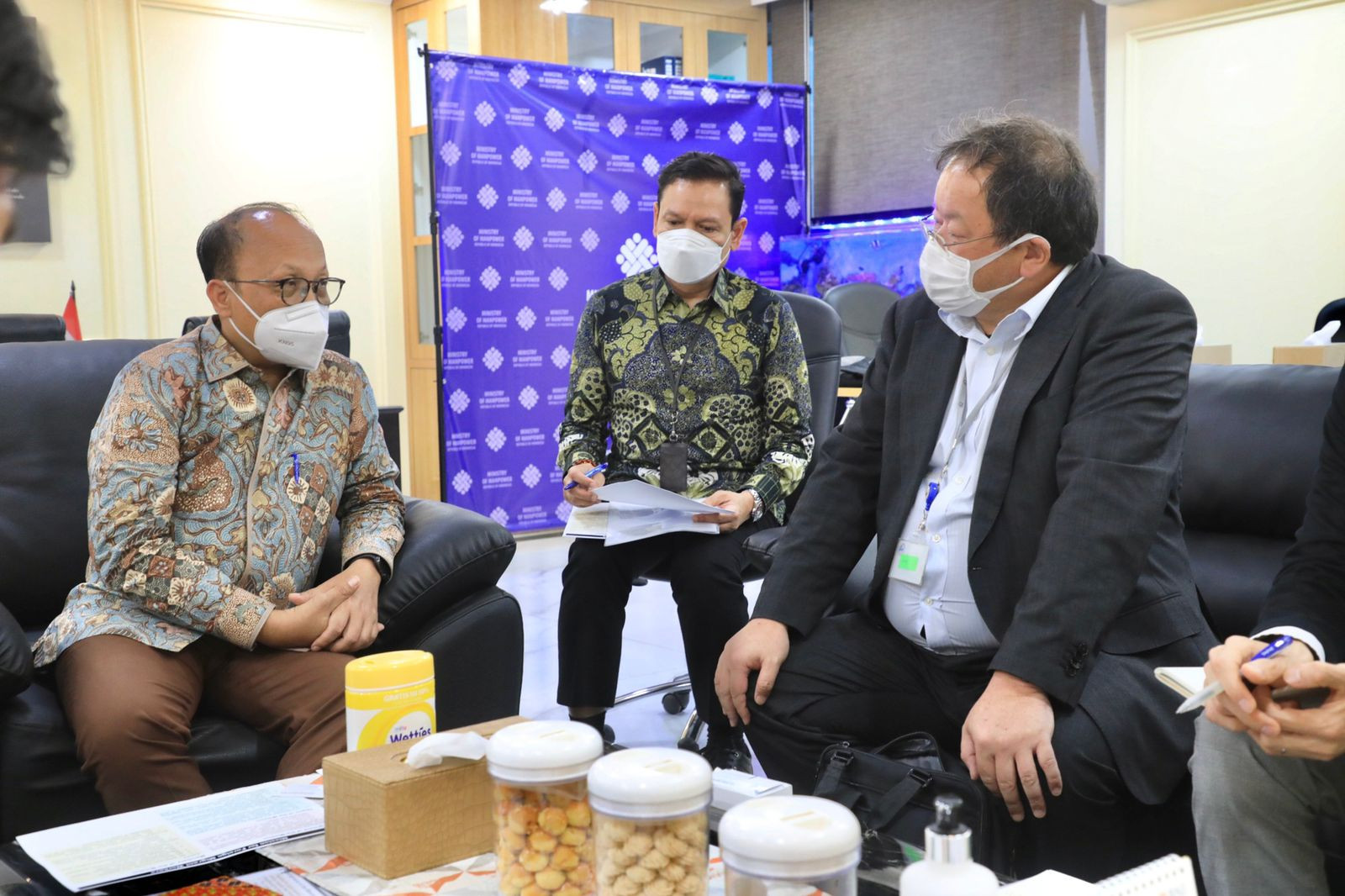UK And Australia's Selective Sanctions Against Myanmar's Junta

Table of Contents
The Nature of UK and Australian Sanctions on Myanmar
Both the UK and Australia have implemented robust sanctions regimes targeting the Myanmar junta. These sanctions are not broad-based but rather focus on specific individuals and entities deemed responsible for human rights abuses and the undermining of democratic processes. The sanctions employ a range of measures designed to cripple the junta's financial capabilities and restrict its access to international support. These include:
-
Asset freezes: This involves the freezing of assets held within the UK and Australia by designated individuals and entities linked to the Myanmar military, including senior military officials, business associates, and companies profiting from the junta's actions. For example, the UK has targeted individuals involved in the jade industry, a significant source of revenue for the Tatmadaw.
-
Travel bans: Designated individuals are prohibited from entering the UK and Australia, preventing them from accessing international financial systems and participating in global events. This serves as a powerful deterrent and a symbolic condemnation of their actions.
-
Arms embargoes: The UK and Australia have imposed strict arms embargoes, preventing the supply of weapons and related materials to the Myanmar military. This aims to curb the junta's ability to continue its campaign of violence against its own people.
-
Financial restrictions: Sanctions also target financial transactions, restricting the junta’s access to international banking and financial systems. This is crucial in limiting the regime's ability to fund its operations and suppress dissent.
The legal frameworks underpinning these sanctions are based on national legislation enabling targeted action against those deemed responsible for serious human rights violations and threats to international peace and security.
The Rationale Behind Selective Sanctions
The rationale for employing selective sanctions against the Myanmar junta is rooted in several key objectives:
-
Accountability: Holding those responsible for the horrific human rights abuses, including the killing of civilians, arbitrary arrests, and systematic oppression, accountable for their crimes. Selective sanctions are a way to signal to the perpetrators that their actions will have consequences.
-
Deterrence: Discouraging further violence and atrocities by making it clear that involvement in human rights abuses will result in tangible penalties.
-
Pressure for democratic reform: Applying pressure on the military regime to cease violence, release political prisoners, and restore a democratic path for Myanmar.
-
Protecting civilians: Reducing the capacity of the junta to commit further violence against the civilian population.
However, the limitations of selective sanctions must also be acknowledged. Critics argue that they may not be sufficient to significantly alter the junta's behavior, and that they can have unintended humanitarian consequences, particularly for the civilian population already suffering under the regime's oppression. The principle of proportionality – ensuring that sanctions are targeted and do not disproportionately harm innocent civilians – is crucial in the application of this approach.
Effectiveness and Challenges of the Sanctions Regime
Assessing the effectiveness of the sanctions regime is a complex undertaking. While there is no single metric to measure success, certain factors point both to successes and shortcomings:
-
Sanctions evasion: The junta has demonstrated a capacity to evade sanctions through informal channels and alternative financial networks. This necessitates continuous monitoring and adaptation of sanctions strategies.
-
Impact assessment: Determining the precise economic and social impact of the sanctions requires comprehensive research and data analysis. Reports from organizations like the UN and human rights NGOs are essential in evaluating the effectiveness of the measures.
-
Humanitarian implications: A critical concern is the potential for sanctions to inadvertently worsen the humanitarian situation in Myanmar. Careful consideration must be given to the impact on humanitarian aid and access to essential supplies for vulnerable populations.
-
Regional cooperation: The success of sanctions heavily depends on regional cooperation. Stronger coordination with neighboring countries and regional organizations, such as ASEAN, is necessary to minimize the potential for sanctions evasion and maximize their overall impact.
-
Alternative funding sources: The junta's access to alternative funding sources, such as revenue from natural resources like jade and timber, can offset the impact of financial restrictions.
International Cooperation and Future Directions
Strengthening the sanctions regime requires increased international cooperation. Alignment of UK and Australian sanctions with those of the EU and other countries is crucial. A coordinated approach, possibly through the UN Security Council, could significantly enhance the pressure on the Myanmar junta. However, securing a unified stance from the UN Security Council remains a significant challenge due to political divisions among member states. The role of ASEAN, while limited so far, also holds potential for greater involvement in promoting a peaceful resolution and holding the junta accountable. Future strategies should focus on:
-
Enhanced intelligence sharing: Improved cooperation amongst countries to track and prevent sanctions evasion.
-
Targeting additional individuals and entities: Expanding the scope of sanctions to include those supporting the junta's activities.
-
Exploring alternative pressure tactics: Considering additional measures such as targeted diplomatic pressure and support for civil society organizations within Myanmar.
Conclusion
The UK and Australia's selective sanctions against the Myanmar junta represent a critical effort to hold the military regime accountable for its human rights abuses and its undermining of democracy. While these targeted sanctions aim to pressure the junta to cease violence and restore democratic processes, their effectiveness faces challenges, including sanctions evasion, unintended humanitarian consequences, and the junta's access to alternative funding sources. Success hinges on robust international cooperation, strong regional engagement, and continuous adaptation of strategies to overcome evasion tactics. The situation in Myanmar demands sustained international attention and innovative approaches. We must stay informed about developments, support organizations working to protect the people of Myanmar, and advocate for stronger international action through more effective Myanmar sanctions and other measures to hold the junta accountable. The fight for accountability and the restoration of democracy in Myanmar requires ongoing commitment and collaboration from the international community. Let's continue to push for improved targeted sanctions effectiveness to ensure justice prevails.

Featured Posts
-
 Karding Pastikan Zero Tolerance Terhadap Penempatan Pekerja Migran Ilegal Di Kamboja Dan Myanmar
May 13, 2025
Karding Pastikan Zero Tolerance Terhadap Penempatan Pekerja Migran Ilegal Di Kamboja Dan Myanmar
May 13, 2025 -
 Deja Kellys Leadership Oregon Tournament Preview
May 13, 2025
Deja Kellys Leadership Oregon Tournament Preview
May 13, 2025 -
 Newcastle Fans Championship Play Off Predictions Who They Want To Win
May 13, 2025
Newcastle Fans Championship Play Off Predictions Who They Want To Win
May 13, 2025 -
 Cassie Ventura And Alex Fine Announce Third Pregnancy
May 13, 2025
Cassie Ventura And Alex Fine Announce Third Pregnancy
May 13, 2025 -
 Derbito Go Odluchi Se Barnli I Lids Povtorno Vo Premier Ligata
May 13, 2025
Derbito Go Odluchi Se Barnli I Lids Povtorno Vo Premier Ligata
May 13, 2025
Latest Posts
-
 Multiple Familiar Faces Return For Elsbeth Season 2 Finale
May 13, 2025
Multiple Familiar Faces Return For Elsbeth Season 2 Finale
May 13, 2025 -
 Elsbeth Season 2 Finale Returning Characters Confirmed
May 13, 2025
Elsbeth Season 2 Finale Returning Characters Confirmed
May 13, 2025 -
 The Judge Crawford Cliffhanger What To Expect In Elsbeth Season 2
May 13, 2025
The Judge Crawford Cliffhanger What To Expect In Elsbeth Season 2
May 13, 2025 -
 I Need Elsbeth Season 2 Resolving The Judge Crawford Mystery Before Years End
May 13, 2025
I Need Elsbeth Season 2 Resolving The Judge Crawford Mystery Before Years End
May 13, 2025 -
 Will We Get Answers Predicting The Judge Crawford Storyline In Elsbeth Season 2
May 13, 2025
Will We Get Answers Predicting The Judge Crawford Storyline In Elsbeth Season 2
May 13, 2025
